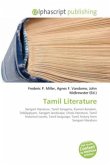Différance is a French term coined by Jacques Derrida and homophonous with the word "différence". Différance plays on the fact that the French word différer means both "to defer" and "to differ." Derrida first uses the term différance in his 1963 paper "Cogito et histoire de la folie". The term différance then played a key role in Derrida's engagement with the philosophy of Edmund Husserl in Speech and Phenomena. The term was then elaborated in various other works, notably in his essay "Différance" and in various interviews collected in Positions. In the essay "Différance" Derrida indicates that différance gestures at a number of heterogeneous features which govern the production of textual meaning. The first is the notion that words and signs can never fully summon forth what they mean, but can only be defined through appeal to additional words, from which they differ. Thus, meaning is forever "deferred" or postponed through an endless chain of signifiers. The second concerns the force which differentiates elements from one another and, in so doing, engenders binary oppositions and hierarchies which underpin meaning itself.








